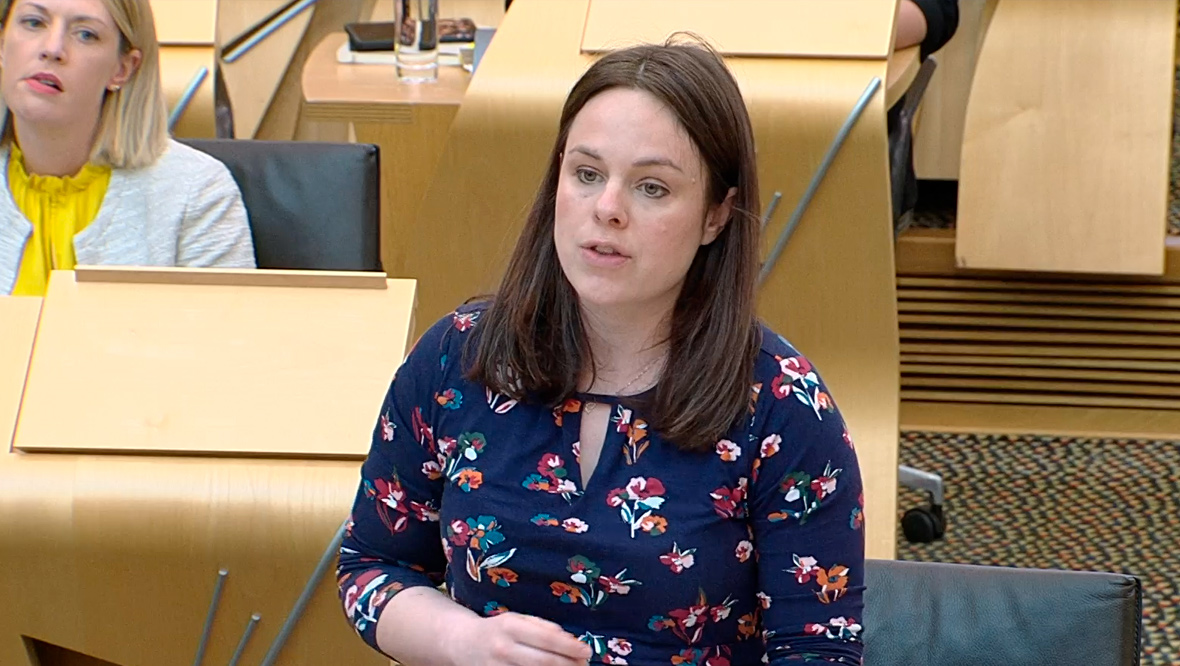Watchdogs have highlighted a “gap in political leadership” within a key Scottish Government strategy that aims to transform the country’s economy.
Then finance secretary Kate Forbes launched the National Strategy for Economic Transformation (NSET) in March 2022, setting out a ten-year blueprint to create a wellbeing economy which delivers for people across Scotland.
But almost two years on, the Economic Leadership Group, which public spending watchdogs at Audit Scotland said was meant to be a “key part” of the NSET, has still not met.
In a briefing paper on the NSET, Audit Scotland there is a “gap in collective political leadership as the Government has yet to establish its planned Economic Leadership Group”.
Under the plans, the group is to be chaired by the First Minister with members including senior Cabinet ministers and the president of local government body Cosla.
Audit Scotland said the Scottish Government had intended the group to be a “key part of overall governance of the NSET”.
Without this body being in place, the watchdog said it is “not clear how evidence about what is successfully transforming Scotland’s economy will flow to the relevant decision-makers”.
With the NSET having set the ambition of a wellbeing economy with a “society that is thriving across economic, social, and environmental dimensions”, Audit Scotland said this marked a change from ministers’ previous economic strategy, which was focused on two objectives: boosting competitiveness and tackling inequality.
Stressing the goal of a wellbeing economy is “beyond the scope of any individual Cabinet minister’s responsibilities”, the watchdog warned that without the Economic Leadership Group being in place, “there is a gap in political leadership for these shared priorities”.
The briefing paper made clear it is “too early to assess the success or impact of the NSET”, and Audit Scotland has recommended ministers establish the Economic Leadership Group, as set out, or put in place some “alternative mechanism to provide the planned political leadership of the strategy”.
Audit Scotland also noted the Government has not yet established a shared budget for the NSET – whose work spans various departments – and said this means responsibility for spending is still within individual directorates.
As a result, it said “there is a risk that NSET objectives are not given the same priority by all directorates when it comes to funding decisions”.
Auditor General for Scotland Stephen Boyle said: “Making the shift to a wellbeing economy whilst also increasing tax revenue is a substantial challenge.
“Collective political leadership remains vital, and the Government needs to better understand the cost and affordability of its plans so it can prioritise spending decisions.
“This is especially important at a time of continued pressure on public finances.”
The Scottish Government has pledged the NSET will be “refreshed and updated”, promising this work will address the key recommendations made by Audit Scotland.
A spokesperson said: “As we approach the strategy’s two-year anniversary, the Scottish Government recognises that much has changed fiscally, politically and internationally.
“In light of this, NSET will be refreshed and updated, addressing the key recommendations of this review by Audit Scotland, which includes revisiting governance to ensure the strategy continues to provide robust oversight.
“The refresh will reflect delivery of existing priorities but also new opportunities and progress against New Deal for Business recommendations, the Withers Review and the Green Industrial Strategy.”
Follow STV News on WhatsApp
Scan the QR code on your mobile device for all the latest news from around the country


 Scottish Parliament
Scottish Parliament

























